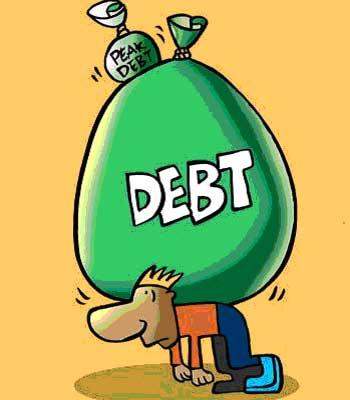 | « Back to article | Print this article |
How to get out of a multiple loan debt trap
Three simple ways to reduce your loan burden.
Manish Gupta has multiple loans which he is struggling to pay off. In his list of loans he has a mortgage loan which he had taken five years ago. A gold loan which he had taken six months ago for some urgent payment he had to make and a personal loan which is 18 months old.
He also has credit card debt of Rs 35,000 which is growing with interest. Manish is at his wit's end to find a way out of this financial mess.
He has a limited amount of money each month that he can use to reduce his debt but it is not enough to reduce his debt burden.
What Manish needs to do is prioritise his payments. Right now he is making his payments in a haphazard way. Let us have a look at what he or someone is his situation should be doing.
Speak to debtors
There are people running banks and financial institutions. They understand financial problems and are often willing to give leeway if they are assured that the loan they have given is not turning into a bad debt.
So speak to the lenders and ask them for extra time for repayment. You can also request for an interest freeze or partial interest wavier which, if granted, can give you a much needed breather.
The author is a credit expert with 10 years of experience in personal finance and consumer banking industry and another 7 years in credit bureau sector. Rajiv was instrumental in setting up India's first credit bureau, Credit Information Bureau (India) Limited (CIBIL). He has also worked with Citibank, Canara Bank, HDFC Bank, IDBI Bank and Experian in various capacities.
How to get out of a multiple loan debt trap
Pay off the high interest loans first
This is just common sense. If you do not pay off the high interest loans, they grow at a monstrous pace.
Credit card debt is the worst. The interest rate ranges from 36 to 42 per cent per annum as against interest rate on home loans which is between 10 to 13 per cent per annum.
So Manish should repay the high interest rate loans first.
Credit card debt should follow gold loans and personal loans and then mortgage loan.
How to get out of a multiple loan debt trap
Refinance to cheaper rates
If one can get a better rate of interest especially for the home loan, he must refinance it to reduce his total outstanding. Usually refinancing is beneficial only if there are several years of repayment ahead.
Add the extra costs such as prepayment penalty and processing charges and compare the benefits before changing banks.



